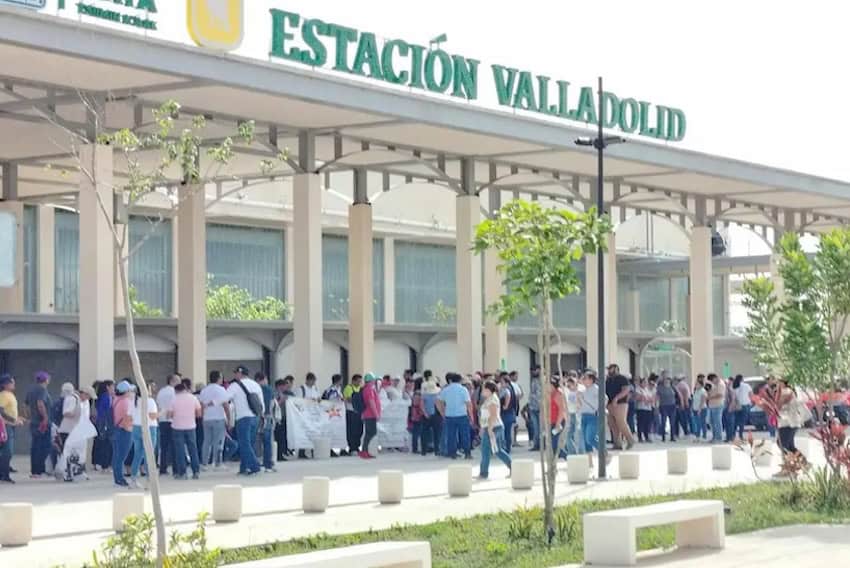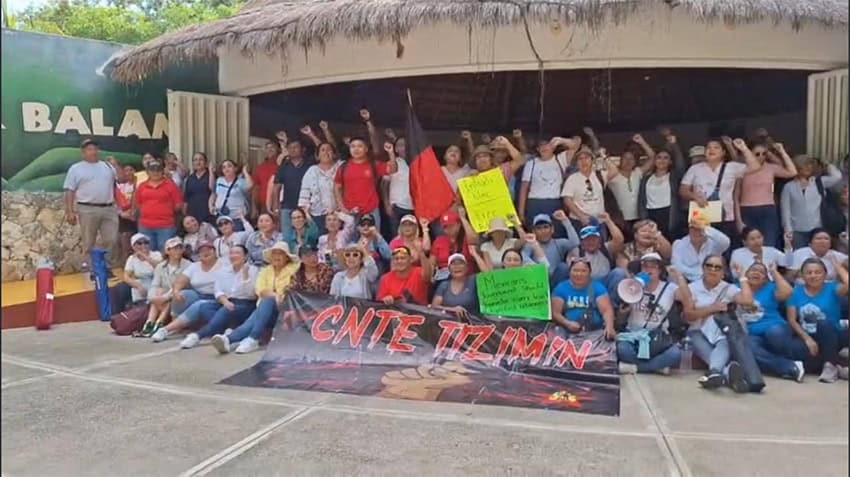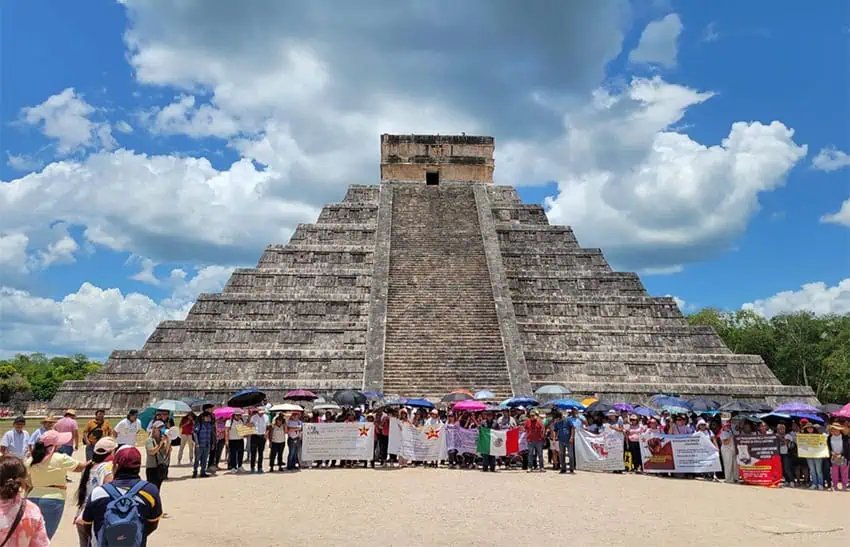Hundreds of teachers from the National Coordination of Education Workers (CNTE) have escalated their protest movement in Yucatán this week, taking over the Chichén Itzá archaeological site on Wednesday and staging a demonstration at the Maya Train station in Valladolid on Thursday.
The actions are part of a continuing wave of mobilizations — including a 23-day sit-in at Mexico City’s Zócalo that ended this week — demanding sweeping changes to Mexico’s education and pension systems.

On Wednesday morning, around 300 CNTE members occupied the ticket booth at Chichén Itzá, allowing free entry to tourists and setting up tents at the site, all the while chanting slogans in Spanish, such as “You can see it, you can feel it, the CNTE is present!”
Similar actions took place at Ek Balam and Uxmal, with teachers reiterating their demands for a 100% salary increase, 90 days of bonuses and, mainly, the repeal of a 2007 ISSSTE (public sector social security) law that restructured federal pensions.
They even issued a statement in English, explaining their demands and the reasons for their protests, in the presence of foreign tourists and the media.
“The teachers of Yucatán denounce that federal and state authorities have remained silent or continue to simulate dialogue, while laws that violate the right to a decent pension remain in force,” CNTE stated on social media, according to the newspaper Reforma.
Despite the disruption, authorities from the National Institute of Anthropology and History (INAH) and local police did not intervene, and operations for tourists continued under the supervision of site staff.
The Cultural Trust called for dialogue, emphasizing the need to avoid compromising the local economy or Yucatán’s reputation as a tourist destination.
Thursday’s protest shifted to the Maya Train station in Valladolid, where about 100 teachers rallied outside the facility without disrupting train operations. Organizers said they would return to their camp in downtown Valladolid while awaiting the outcome of talks with the state government.
Earlier in the week, on Tuesday, teachers and administrators at Metropolitan Technological University called off classes so people could join a march from San Juan Park to the Government Palace in Mérida, Yucatán. Additionally, there were reports of high school students joining the march.
Not all groups supported or participated in the “takeover” at Chichén Itzá.
Juan Luis Robert Arias noted that his group, the Independent Union of Education Workers of Mexico (SITEM-UTM), disagreed with the illegal nature of the action and its negative impact on the final stretch of the academic year.

“We are convening a discussion table with this group of teachers and administrators,” he said. “We have a proposal to teach online classes to properly close the school year and not affect students.”
The actions in Yucatán have come on the heels of the Mexico City sit-in and various other actions around Mexico since May 15. These include toll-booth takeovers, embassy protests, and blockades at the Mexico City International Airport (AICM) and main roads in the capital.
The recent Mexico News Daily article “Teachers in Mexico just got a raise. Why are they protesting?” explains the CNTE demands and where negotiations stand.
President Claudia Sheinbaum had proposed a 10% salary increase, but the union rejected the offer, vowing to continue local demonstrations until their demands are met.
The CNTE has warned that if negotiations do not yield results, protests could intensify nationwide in September, with a possible return to the capital.
For now, teachers across Yucatán, Guerrero and other states say they will keep up the pressure with ongoing strikes and demonstrations.
With reports from Reforma, El Diario, El Universal, La Jornada, La Razon and SDPnoticias.com




